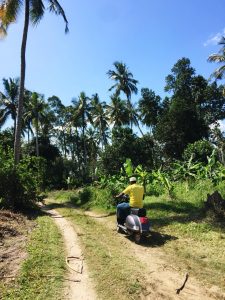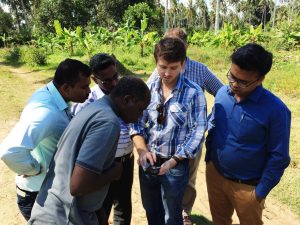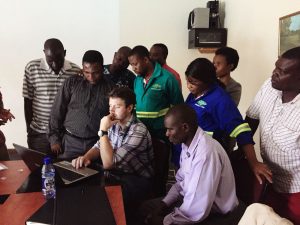26th July 2018

Over the last 18 months, Bonsucro has partnered with TMP Systems on a DFID LEGEND Challenge Fund project, to develop cost-effective, easy data management solutions for less resourced farmers and millers. As the global platform for sustainable sugarcane, Bonsucro is well positioned to explore the options for data management among all segments of the industry, to show that it need not be an expensive or challenging exercise.
Bonsucro’s LEGEND project aims to show that through improved data management, farmers and millers of all sizes, grower bodies and water management schemes can mitigate their exposure to risk, alleviate tenure issues, make targeted improvements more accurately, and reduce their environmental impact. Good data collection and management is an integral element to all sustainability journeys, as without it we are unable to track improvements.
The project involved a number of pilot sites located in several African countries including South Africa, Malawi, and Mozambique. A number of which are measuring various factors involved in sugarcane production or milling, each of the systems that are in use include identifying each pilot’s important stakeholders and monitoring the site’s impact on these stakeholders. Grievance mechanisms and stakeholder engagement processes are tracked through the tools and are used to avoid harmful impacts on human rights and valid tenure rights.
Here we would like to share some of the lessons we have learned along the way and we hope that it will help you in your own data journeys.
 Our first lesson, and perhaps one of the most important, is to partner with effective, enthusiastic, knowledgeable organisations.Partnering with TMP Systems has enabled us to tap into their extensive experience in risk mitigation, with their technical knowledge proving incredibly valuable.
Our first lesson, and perhaps one of the most important, is to partner with effective, enthusiastic, knowledgeable organisations.Partnering with TMP Systems has enabled us to tap into their extensive experience in risk mitigation, with their technical knowledge proving incredibly valuable.
Our support partners at the pilot sites have been instrumental in ensuring that the data system is designed to accommodate the specificities and needs of each site. To help prepare us and our support partners for the potential risk and needs of each site, we used TMP Systems’ IAN tool to conduct geospatial assessments for each of the sugarcane growing and milling areas.
For each pilot, data toolsets were developed to address their specific needs. These toolsets are focussed on reducing risk and improving the responses to risk of our pilot site partners, and they continue to evolve. Our second lesson was the realisation that collaboration is vital for success when developing these systems. This cannot be possible without identifying key people at each site. This means finding at least one individual who is keen, involved and slightly tech savvy. Data journeys need a captain – someone who can coherently explain their site’s needs and will work hard to ensure that the system being designed best fulfils the requirements of that site.
 This brings us to our third lesson; be as specific as possible when it comes to deciding what to measure, and do not be afraid to start small. Pilots that have shown the most promise are those that were able to select one problem statement, clearly map out how specific data could help to resolve or clarify the problem, and then set targets for data gathering and reviewing. An important element is that they stick to these targets. Interestingly, the pilots began to show commonalities in terms of data needs, which led our project team to develop easy-to-deploy, replicable modules, that can then be moulded to suit the users’ requirements.
This brings us to our third lesson; be as specific as possible when it comes to deciding what to measure, and do not be afraid to start small. Pilots that have shown the most promise are those that were able to select one problem statement, clearly map out how specific data could help to resolve or clarify the problem, and then set targets for data gathering and reviewing. An important element is that they stick to these targets. Interestingly, the pilots began to show commonalities in terms of data needs, which led our project team to develop easy-to-deploy, replicable modules, that can then be moulded to suit the users’ requirements.
While these three lessons from our data journey are by no means a complete list, they do illustrate the importance of creating a clear united vision and understanding in the organisation of the data that needs to be collected. The tools are designed to facilitate more transparent and more immediate communication between millers and cooperatives, and cooperatives and smallholders, and vice versa. For this reason, our own data journey has required that interest from all these stakeholders is sustainable. Where this attitude is most prevalent, we hope to see the strengthening of tenure security, improving of corporate procedures, enhancing the capacity for community involvement in decision making, and ultimately a more sustainable sugar supply chain.
Jessica Cochrane
Bonsucro LEGEND Project Consultant





